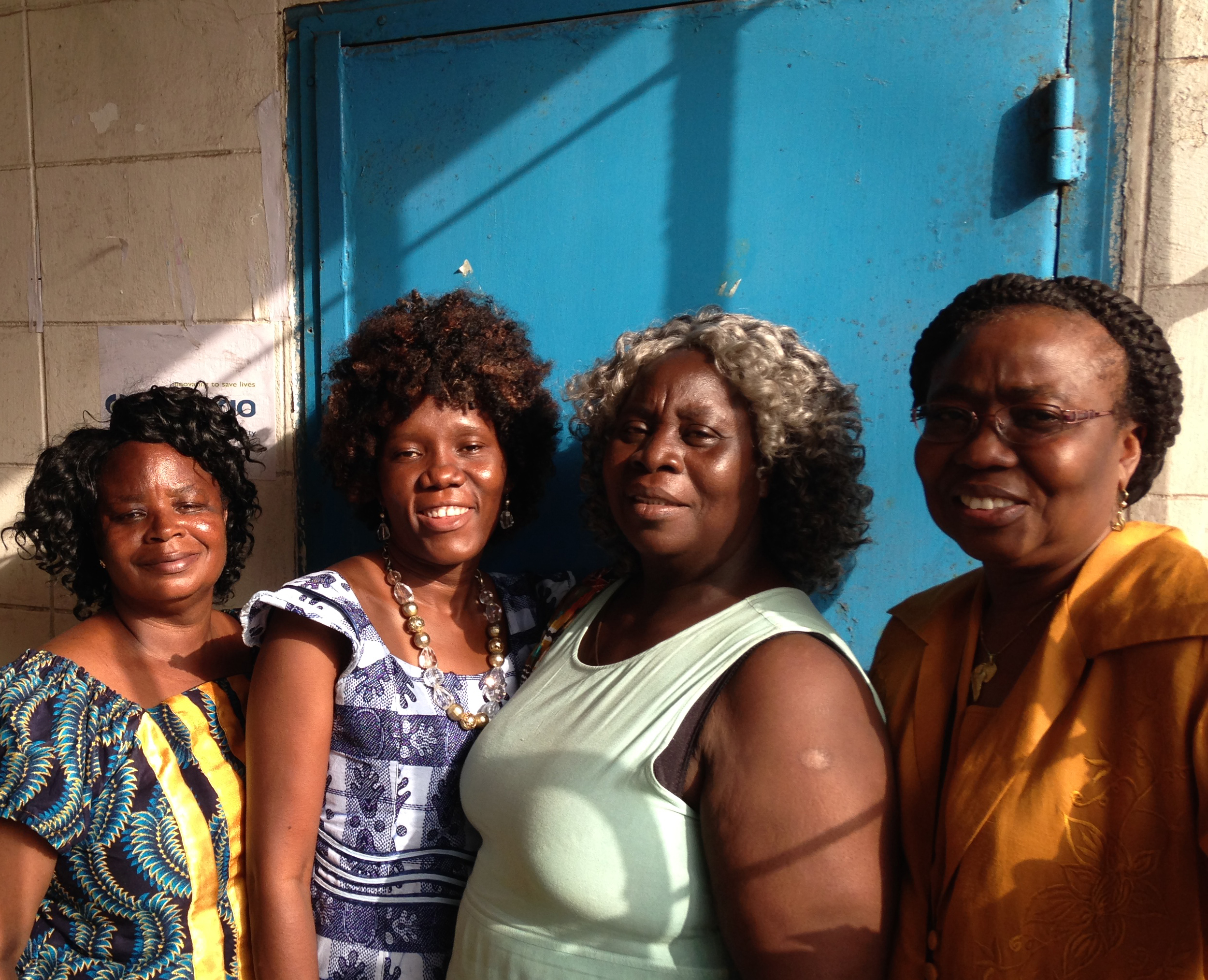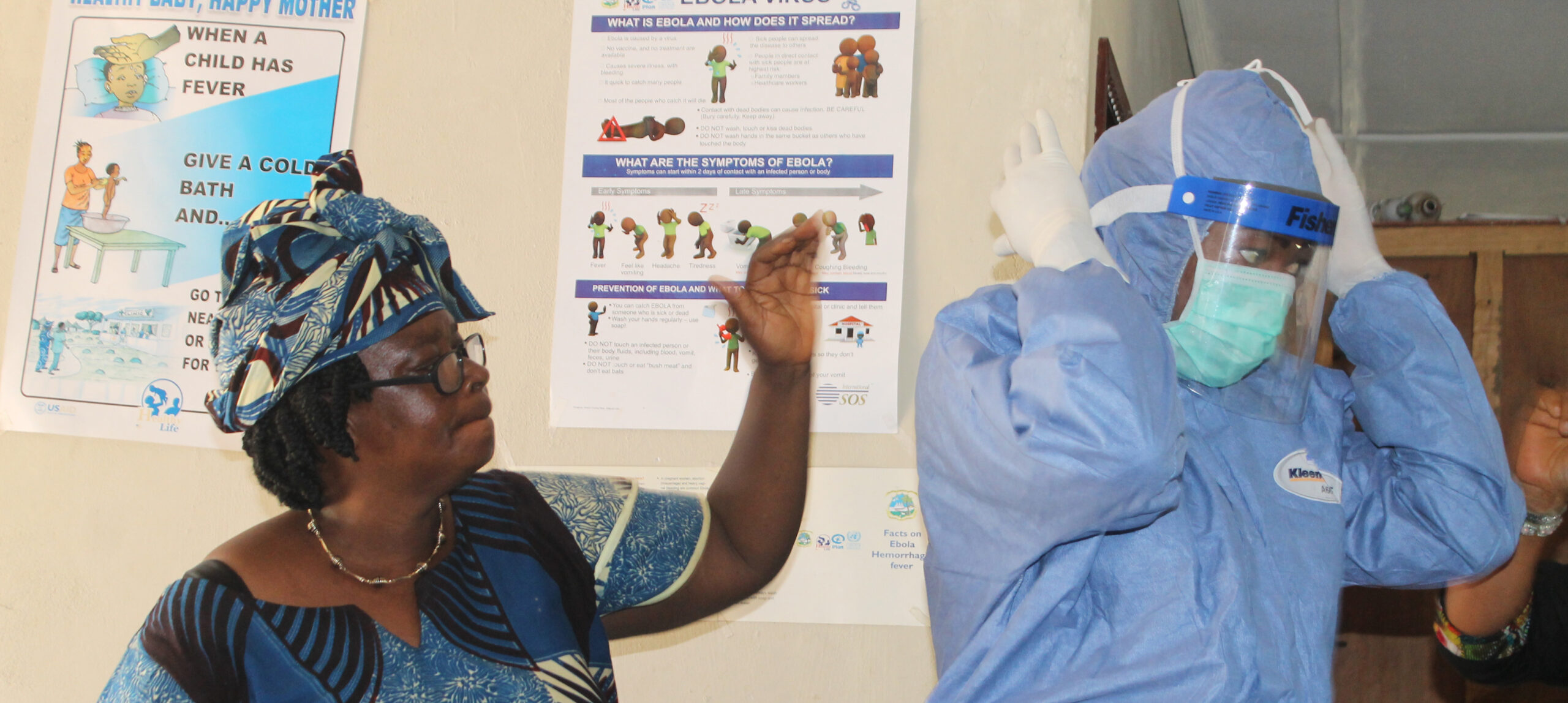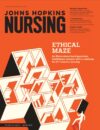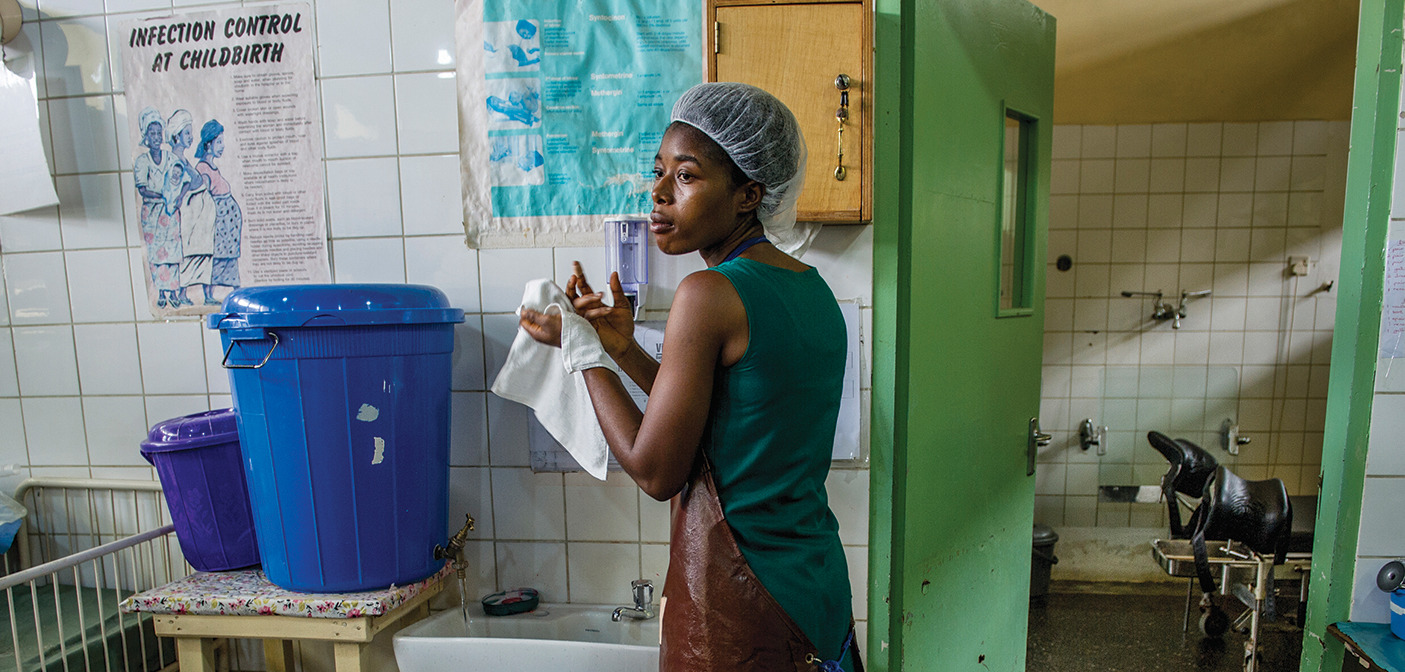For Liberian nurses, Ebola prevention becomes part of every discussion
As the Ebola crisis overwhelmed their native Liberia, nurses Comfort Gebeh, Nyapu Taylor, and Varwo Sirtor-Gbassie responded to repeated calls to update infection prevention and control practices in health facilities. The trio traveled throughout the capital of Monrovia and neighboring districts, training health providers on approaches and skills that could save lives: hand hygiene, instrument cleaning and sterilization, proper disposal of waste materials, and other infection prevention measures.
The nurses are expert trainers who had spent the better part of the past five years helping strengthen the delivery of maternal and newborn health services in Liberia as part of Jhpiego’s team in country. They also educated nurses and midwives on the latest in maternal health and family planning measures, teaching them how to properly counsel women on the impact of healthy birth spacing.
But since the Ebola virus swept through their country, devastating the health system and killing more than 1,000, the nurses have incorporated information on the disease into their routine trainings and adapted their infection prevention and control materials for the Ebola context.
“If we are talking about family planning, we have to talk about Ebola too,” said Marion Subah, a former Hopkins nurse and Jhpiego’s country representative. “This is what we do, now that we have the outbreak.”The Jhpiego nurses have worked overtime to share the latest information in infection prevention, providing the tools needed for frontline health workers to protect themselves and patients. It has been a humbling and rewarding experience, says Taylor, “especially when participants show that they fully understand the importance of practicing infection prevention and control (IPC) at all times and when they identify how IPC helps protect them from infecting patients or themselves.” Photo by JhpiegoThe Jhpiego team was so well-known for the quality of its training that community groups reached out as well. More than 100 members of the Muslim community from Monrovia attended one such training session. “We talk about washing hands, fixing the right concentration of chlorine solution [to clean and disinfect surfaces],” says Subah, a native Liberian. “We tell people, ‘Do not touch anybody with Ebola symptoms unprotected. And if you are called on to help someone, you must put on the double black plastic bags, and call the hotline if someone is sick.’ ”
Photo by JhpiegoThe Jhpiego team was so well-known for the quality of its training that community groups reached out as well. More than 100 members of the Muslim community from Monrovia attended one such training session. “We talk about washing hands, fixing the right concentration of chlorine solution [to clean and disinfect surfaces],” says Subah, a native Liberian. “We tell people, ‘Do not touch anybody with Ebola symptoms unprotected. And if you are called on to help someone, you must put on the double black plastic bags, and call the hotline if someone is sick.’ ”
Muslim leaders identified with the step-by-step process of properly washing hands because of their practice of ritual washing. When the nurses explained the need to forgo the traditional washing of the dead to prevent possible transmission of the Ebola virus through body fluids, Muslim leaders agreed.“At the end of the day, each [group] came up with action plans for infection prevention at their different mosques, including sharing the message in communities, with women’s groups, market merchants, youth, motorcyclists, and others,” says Taylor.“If we are talking about family planning, we have to talk about Ebola too.”
– Marion Subah Photo by JhpiegoThe selflessness of her Jhpiego colleagues has been inspiring, says Subah. “Everybody would do what had to get done. They put other people first. They are very understanding. People have been through some pretty difficult times. They are very resilient.”
Photo by JhpiegoThe selflessness of her Jhpiego colleagues has been inspiring, says Subah. “Everybody would do what had to get done. They put other people first. They are very understanding. People have been through some pretty difficult times. They are very resilient.”
Feature Photo by Karen Kasmauski/ MCHIP

